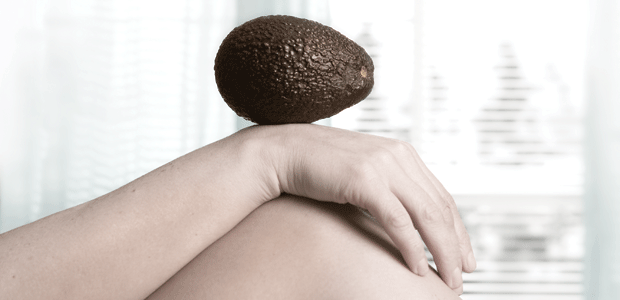Advertisement
Natural Solutions for Eczema
Scratching the surface

If you suffer from the itch and sting of eczema, you’ll be happy to know there are natural solutions that have what it takes to bring relief.
Although many assume eczema is a singular condition with a singular cause, eczema actually describes a whole group of skin conditions that can affect anyone, at any age. The most common of these conditions is known as atopic dermatitis.
Water shortage
Often triggered by an allergy, eczema (atopic dermatitis) involves excess moisture loss, leading to dehydrated skin that is easily damaged.
Drink it up
Keep skin hydrated with a few lifestyle strategies combined with soothing topicals.
- Take short, warm showers; they are better than hot baths that can damage lipids in your skin.
- Use coconut oil in place of soap on face and body skin.
- If you prefer a bath, soak in warm water for no more than 15 minutes to prevent moisture from leaving your skin.
- For a soothing soak, toss one cup of Epsom salts and a quarter cup of olive oil in the tub with you.
- After your quick rinse, apply a natural oil, such as avocado or jojoba, to still-moist skin to seal in moisture.
- Apply cremes such as zinc several times daily to provide a great moisture trap.
|
Common eczema triggers
|
Scratching the surface
Eczema involves more than irritated, itchy, and often sore skin: approximately 90 percent of people with eczema have a bacterial Staphylococcus aureus (staph) infection. S. aureus antagonizes eczema by secreting superantigens and structural molecules into the wall of skin cells, triggering inflammation.
While bacterial infection is common, studies don’t support the use of antibiotics for atopic dermatitis.
Botanical Remedies
Try botanical remedies to support your immune system and for their cleansing properties:
- goldenseal (Hydrastis canadensis)
- yellow dock (Rumex crispus)
Salves
To soothe infected skin, apply salves containing extracts of
- rosemary (Rosmarinus officinalis)
- boswellia or apply directly on affected skin
- raw honey
- raw, organic coconut oil
Beauty prescription for eczema
- EPA/DHA (fish oil) – 2,000 IU
- borage oil – 1,000 mg
- vitamin A – 10,000 IU
- vitamin-B complex – 100 mg
- vitamin C with bioflavonoids – 3,000 mg
- vitamin D – 1,000-2,000 IU
- vitamin E – 800 IU
- selenium – 200 mcg
- zinc – 50-100 mg
- borage oil – 4,000 IU
- grapeseed extract – 50-200 mg, 3 times daily
Some types of eczema may be associated with Candida albicans overgrowth (a type of yeast-like fungi that is present in most of us). Limiting dietary sugars and using probiotic supplements will help re-establish balance in the digestive tract.
|
Bedsheet care Research done in the homes of those with severe and persistent eczema discovered high levels of S. aureus in their bedsheets.
|
Inside information
Skin cells are only as good as the building material they’re made of, so give yours what they need to be hydrated, vibrant, and healthy. The membrane of every cell of your body is made up of fat. If your body only has access to weak, trans fats from french fries and baked goods, your skin will reflect it.
Omega-3 fats
For plump, nourished cells, make sure your diet contains ample omega-3 fats from
- nuts and seeds
- salmon, tuna, and halibut
- fish oils
Gamma-linolenic acid (GLA)
Because inflammation is a factor with eczema, be sure you have adequate anti-inflammatory omega-6 fat gamma-linolenic acid (GLA) in your diet. Unfortunately, many people with eczema have trouble converting omega-6 fats into GLA, so take your GLA directly from
- spirulina
- borage oil
- evening primrose oil
- hemp oil
Daily nutrients
To promote vibrant skin and aid in skin repair:
- zinc from seafood and pumpkin seeds
- selenium in Brazil nuts and salmon
- silica in leafy vegetables and brown rice
- vitamin A in orange vegetables
- vitamin C in citrus and peppers
Be sure you balance your intake of diuretics such as coffee and tea with pure, filtered water to replenish moisture from the inside. Add a daily multiple to your nutrient-dense diet.





